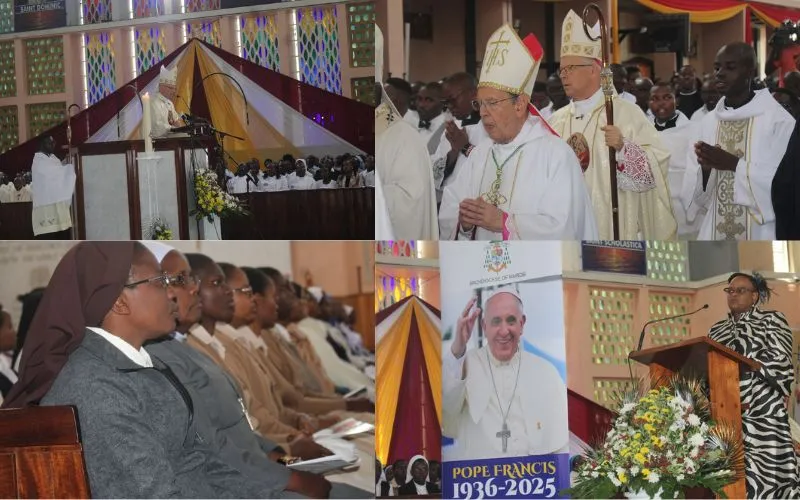“While Eswatini is known for its traditional structure of dialoguing, all the people that we spoke to, except the government, have expressed opinions about considering other structures of dialoguing. Given this clear wish, unfortunately accompanied by violence, it appears to us that ‘dialogue about dialogue’ would be a constructive starting point and that this begins sooner than later,” SACBC members said.
The Bishops also say they spoke to people who indicated they felt alienated by the King in the country and called on the country’s leadership to restore “a felt symbiotic and caring relationship between the King and His people.”
The Bishops lament that Eswatini, traditionally known to be a country of peace and a home to those who had been displaced in their own countries, is now plunged in turmoil.
They say it was now the turn for Eswatini’s neighbors to return the favour and to restore the country’s peace and prosperity.
According to the Bishops, the Kingdom of Eswatini is known as a peaceful country with a culture of courtesy, humanness, and hospitality.
(Story continues below)
“We remember its hospitality and solidarity when it received the South African refugees and exiles who were fleeing the oppression of the Apartheid state, in South Africa. We also remember the hospitality with which the people of Eswatini received refugees from Mozambique in the late 1980’s and early 1990’s, fleeing the violence of the civil war in that country,” SACBC members say.
They add, “Both these countries owe an enormous debt of gratitude to the people of Eswatini. Exiles benefitted from the superior quality of education in the Kingdom and returned well equipped to serve their countries.”
The leadership of the three-nation conference note that like many countries, Eswatini had been hit hard by the HIV pandemic, which had been compounded by other social, political, and economic challenges and lately by COVID-19, forcing many into abject poverty.
“Over the years, the eMaswati have, true to their peace-loving nature, been navigating these difficult times peacefully. The recent upsurges of unprecedented violence, that swept the country in the middle of this year and resulted in loss of life and limb as well as the large-scale destruction of property, seem to suggest a loss of patience that must be regained if this beautiful country is not to descend into civil war and the concomitant suffering that has befallen other countries,” SACBC members say.
The Catholic Bishops say that they have seen a lot of suffering in Eswatini and express their fear that “worse still to happen” in the country unless something is done to salvage the situation.
They express their gratitude to the people of Eswatini for their support during the solidarity visit saying, “We are grateful to the government of Eswatini for welcoming us and talking to us about the situation in the country.”
“We are equally grateful to the Eswatini Catholics, consecrated women, Priests, Eswatini Council of Churches and the multiple civic groups as well as individuals who shared their views about the situation in the country,” SACBC members say in their October 14 collective message titled, “A statement following the solidarity and pastoral visit to Eswatini by the SACBC.”
Agnes Aineah is a Kenyan journalist with a background in digital and newspaper reporting. She holds a Master of Arts in Digital Journalism from the Aga Khan University, Graduate School of Media and Communications and a Bachelor's Degree in Linguistics, Media and Communications from Kenya's Moi University. Agnes currently serves as a journalist for ACI Africa.








